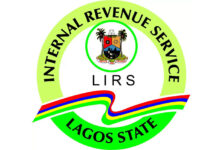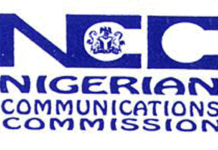
At a National Economic Council meeting dominated by presentations and discussions on how Nigeria can significantly improve and drive its non-oil exports, Vice President Yemi Osinbajo, SAN, directed the composition of a National Committee on Export Promotion to review several ideas and suggestions tabled at today’s meeting at the Presidential Villa, Abuja.
Speaking at the NEC, composed of State Governors, FCT Minister and the Central Bank Governor, Prof. Osinbajo who chairs the Council expressed delight at “the robust discussions we have had today, and the many useful suggestions made,” adding that both the Federal and State governments would work together to promote non-oil Nigerian exports.
“Whatever the FG is required to do, will we do and States should also take ownership,” the VP stated, noting that both government levels must sit together, work together and assist each other.
He then announced a Committee of NEC consisting of three State Governors: Jigawa, Lagos and Ebonyi and the federal ministers from Industry, Trade & Investment, Agriculture & Rural Development, Power, Works & Housing, Transportation and Finance.
Other members of the Export Promotion Committee of NEC are the Nigerian Export Promotion Council, NEPC, Nigerian Export Processing Zones Authority, NEPZA, NEXIM Bank, and the CBN. Jigawa State Governor Alhaji Mohammed B. Abubakar is the Chairman, and Industry, Trade & Investment Minister, Dr. Okey Enelamah is Co-Chair.
The Committee which is expected to submit an initial report by November is expected to come up with a concise action plan on how to drive non-oil exports based on the presentations and discussions of Council at today’s meeting.
HIGHLIGHTS OF TODAY’S NATIONAL ECONOMIC COUNCIL MEETING PRESIDED OVER BY VICE PRESIDENT YEMI OSINBAJO, SAN
*7TH IN 2017) 80TH NEC MEETING – THURSDAY, 28TH SEPTEMBER, 2017
- PRESENTATION ON STRATEGIC EXPORT INITIATIVES BY HONOURABLE MINISTER OF AGRICULTURE AND RURAL DEVELOPMENT
The Honourable Minister of Agriculture and Rural Development briefed Council on “Strategic Export Initiatives – A framework and action plan to grow and diversify export of agro-products.
- The Minister listed exportable agro commodities to include; Coffee, Cashew Nuts, Rubber, Kolanuts, Palm Kennel, Coconuts, Cotton, Ogbonno, Ginger, Timber, Shrimps among others.
He told Council that agricultural export had increased by 82% in the first quarters of 2017, while export earnings from agric goods stood at N30.0 billion for the same period.
The Minister gave the breakdown of the export earnings from various crops as follows:
- Sesame seeds’ export of N3.7 billion to Turkey; N1.6 billion to China; and N1.6 billion to India.
- Soya beans export of N3.4 billion to Russia; and N1.2 billion to Greece.
iii. Frozen shrimp export of N2.2billions to the Netherlands.
- Cashew nuts export of N1.8billion to Vietnam.
- Crude palm kernel oil export of N1.2 billion to the Netherlands.
- The total value agricultural goods’ trade in Q2 2017 was N261.92 billion representing 4.60% of total trade in Q2 (1.03% lower than N30.02 billion in Q1)
vii. Agriculture exports was 0.96% of total exports in Q2 2017
viii. Destination of Agriculture exports in Q2 2017 were Asia (66.38%); Europe (24.98%); Americas 4.37%; Africa 3.88%; and the Oceanic 0.39%.
- Agriculture exports in Q2 were driven by the export of Cashew nuts worth N13.5billion or 45.4% of the total agriculture exports and 1.37% of total exports.
- Cashew nuts export to Vietnam was N12.16 billion; N1.4billion to India and N6.34 million to Kazakhstan.
- Sesame seed exports in Q2 was N7.0 billion or 23.6% of total agriculture exports.
xii. Sesame seeds export to Japan was N1.3 billion; India N0.9 billion; Turkey N0.9 billion; South Korea N0.8billion; and China N0.6 billion.
xiii. Frozen shrimps and prawns’ export was N1.6billion or 9.6% of total agriculture exports: Netherlands N1.5 billion; Belgium N0.67 billion; United States N0.22 billion; France N0.17 billion; and Spain N87 million.
xiv. Exports of soya bean flour and meals were N2.3 billion (7.8% of agricultural exports): N2.1 billion to Spain; N116.6 million to Ghana; N72.9 million to Senegal; N18.1million to Mauritania; and N2.0million to Germany.
- Other agricultural exports: Ginger N663.7 million; flowers N568.5 million; Peanut kernels and other groundnuts N481.3 million; and Milk and cream powder N282.4 million
- PRESENTATION ON “THE ZERO OIL PLAN” BY THE NIGERIAN EXPORT PROMOTION COUNCIL
The Nigerian Export Promotion Council made a presentation to the NEC, on a plan to restructure the Nigeria Economy to survive without Crude Oil. The Plan is called “The Zero Oil Plan”.
Council was informed that Nigeria is going through the sharpest falls of export revenues in her history, loosing over $100 billion US dollars (N30 trillion) of National export revenue between 2015 to 2017 due to the crash in oil prices, which resultant effect was recession.
Council was informed that there was urgent need to rapidly ramp up non-oil exports as our future earnings from crude oil face significant headwinds.
The “Zero oil Plan” aims at earning at least $30 billion from non-oil sources in the near to medium term as against the current earnings of about $5 billion.
The objectives of the Zero Oil Plan is to add $150 billion to Nigeria foreign reserves over the next 10 years, create 500,000 jobs, lift 10 million Nigerians out of poverty and integrate each State of the Federation into the export value chain
The focus of the plan is on the export of the following crops – Rice, Wheat, Corn, Palm Oil, Rubber, Hides and Skin, Sugar, Soyabeans and automotive parts among others.
Destination countries for our exports include; Netherlands, China, Iran, Germany, United Kingdom, France, Spain, Italy, India, S/Arabia, among others.
- PRESENTATION ON STATES EXPORT DEVELOPMENT INITIATIVE BY THE NIGERIAN EXPORT-IMPORT BANK (NEXIM)
NEXIM briefed Council on the “States Export Development Initiative” which is being pursued as a medium to long term strategic plan aimed at stimulating and increasing deliberate funding intervention to SMEs in the non-oil sector for the attainment of its objectives.
Council was informed that one of the major objectives of the initiative is contributing to the implementation of economic policies of the country, like the ERGP and the Agricultural Promotion Policy among others. It added that the initiative is built on schematic transaction dynamics with key features like provision of a dedicated funding of a minimum of N5 billion as a pilot phase with window for other facilities and partnership for transactional support.
Council was further informed that the initiative will also help to re-awaken the business consciousness of the States towards export and value added production, especially in the areas of manufacturing, agro-processing and solid minerals.
- PRESENTATION ON SPECIAL ECONOMIC ZONES AS TOOLS FOR RAPID ECONOMIC DEVELOPMENT BY NIGERIAN EXPORT PROCESSING ZONES AUTHORITY (NEPZA)
The Managing Director of the Nigerian Export Processing Zones Authority briefed Council on the need to have more special economic zones in addition to the Calabar Free Trade Zone.
He told Council that the major defect in the Calabar Free Trade Zone is that the zones has not been linked to the Calabar Port, and that there is urgent need to do so in order to make the zone a lot more effective.
Partnership between the Federal and State Governments as well as the private sectors is needed.
He urged Council to ensure that the location of Free Trade Zones should be done strictly on business consideration and not political considerations.
He also asked Council to provide incentives for Free Trade Zones to include linkage to rail lines, express ways, close proximity to utilities, airports among others.
COUNCIL DECISION ON EXPORT PROMOTION RELATED PRESENTATIONS
There is absolutely a need to promote export. It is also important to emphasize that the States should take ownership of the process. Federal Government and States will work together and collaborate on how to actualize the export promotion plan for the country.
- A National Committee on export promotion has been constituted. The members include:
– Federal Ministry of Agriculture and Rural Development
– Federal Ministry of Industry, Trade and Investment
– Federal Ministry of Transport
– Federal Ministry of Power Works and Housing
– Federal Ministry of Finance
– Three Governors (Jigawa, Lagos and Ebonyi States)
– Central Bank of Nigeria
– NNPC
– NEXIM
- The Committee will draw up a single plan based on the various templates that have been presented.
- The Committee should submit its report by November 2017.
- Committee will be chaired by the Governor of Jigawa State and co-chaired by the Minister of Industry, Trade and Investment
- UPDATE ON THE STATE OF THE ECONOMY BY THE HONOURABLE MINISTER OF BUDGET AND NATIONAL PLANNING (HMBNP)
- The HMBNP briefed Council on the State of the Economy, informing Council that the earlier projection was that the country will exit recession by the third quarter of 2017. He however noted that the exit from the recession came three month earlier i.e. in the second quarter of 2017.
- He gave Council a breakdown of sectoral performance of the economy, adding that Agriculture has the highest GDP growth.
- He told Council that inflation has come down to 16.01% in the second quarter from over 18% in the last quarter of 2016. Council was also informed that confidence is gradually returning to the economy.
- He invited Council to note as follows:
- That the NBS has published the GDP for the economy for Q2 2017;
- That the economy has now recovered from recession growing 0.55% in the second quarter of 2017, with Agriculture growing at 3.01% in Q2 2017, Industry growing for the first time in nine quarters by 1.45%, while Services contracted by -0.85%;
iii. That the recovery was driven largely by growth in agriculture, manufacturing, crude oil and gas production, solid minerals, financial services, and electricity supply;
- That headline inflation has trended downwards every month since January, though further developments in food prices still need to be watched closely;
- That the economy is sustaining the growth in capital imported into the country with improvement in foreign reserves and trade balance;
- That unemployment and underemployment remain a challenge for the economy;
vii. That despite these improvements, the economy is still deemed vulnerable to shocks and focused policy implementation is required to sustain the recovery; and
viii. The need to continue implementing the ERGP for sustainable development.
- PRESENTATION ON SPECIAL ACCOUNTS
- The Honourable Minister of Finance made presentations to Council on the status of the Special Accounts of the Federation. She told Council that the current balances in the Special Accounts of the Federation are as follows:
- Stabilization Account Balance as at 26th September, 2017 stand at N4,354,300,295.64
- (ii) Development of Natural Resources Account Balance as at 26th September, 2017 stands at N84,693,588,214.54
(iii) Excess Crude Account balance as at 22nd September, 2017 stands at $2,309,577,899.02
FEDERAL GOVERNMENT BUDGET SUPPORT TO STATES
With the N630 billion figure available for FAAC this month, exceeding the N600 billion threshold, Council was informed that the Budget Support Facility will be unnecessary this month. Council also urged for the continued compliance with the Fiscal Sustainability Plan by the States for continued eligibility for the Federal Government Support Loan Facility. 8 States of the Federation met the Fiscal Sustainability Plan criteria in July and therefore received the Budget Support for that month. About 22 other States are in the process of meeting the criteria.
AOB ISSUES:
ROAD COLLAPSE
- Council members expressed concern over issues of roads construction, damage and maintenance and suggested that the Ministry of Power, Works and Housing come up with strategies to regulate the weight of heavy duty vehicles plying the roads as this may be responsible for road damage and collapse.
TAKEOVER OF SOME ROADS BY STATES
- Council also resolved that interested States could write to the President requesting approval for States to take over some of the Federal Roads to ensure proper and efficient maintenance. NEC also expressed willingness to take a wholistic approach on the issue of such roads across the country.
NEW NEC SECRETARY INTRODUCED
- The HMBNP informed Council that a new Secretary to the National Economic Council, Mr. Leon L. Aliboh has resumed duty following the retirement from 35 years of service by the former Secretary to Council, Mrs. Nana Fatima Mede.
- Mr. Aliboh is Secretary to Council by virtue of his new position as Permanent Secretary for the Ministry of Budget and National Planning.





